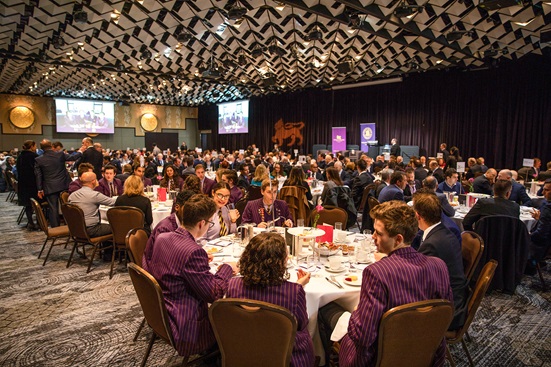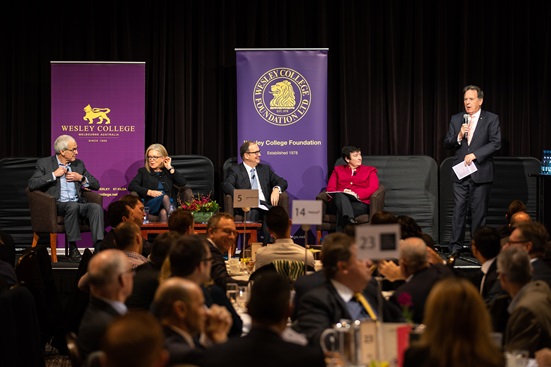
During the week, I was fortunate to attend the Wesley College Foundation 11th Annual Business Breakfast in the Grand Ballroom at the Sofitel on Collins. Despite the early 7am start, there was a great energy in the room and the audience anticipated a lively conversation around the theme, ‘The Future of Work’.
There was little surprise to hear about how automation would disrupt many jobs as we know them today, but discussion about the skills that students require now to set them up for the change in work was of greater interest.
There is much discussion in the education sector about 21st-century skills and which ones are most important. It would be impossible to prioritise these skills, but the panel that addressed the breakfast audience explained that the view emerging from many different sources is that skills that develop resilience, teamwork and problem solving are crucial. In addition to these, empathy was highlighted as an essential skill that is a long way from being automated.
At Wesley College, these skills and attitudes are integrated into many aspects of our students’ school day. Our Social Thinking Program centres around students developing resilience through a deeper understanding of their own thoughts and feelings, and those of others. Through developing a greater awareness of, and an open-mindedness to, the perspectives of others, a greater understanding can be developed, leading to stronger empathy and an ability to be more resilient.
The Future of Work

The Future of Work

The Future of Work

At the heart of a Wesley education is the ability to collaborate. Beginning in the Early Childhood Learning Centre, students learn about the power of collaboration and understand that, through working with others, new and better understandings can be developed. Collaboration can happen in all learning areas at all year levels and supports students’ social skills, particularly the skill of adopting a variety of group roles and the ability to make group decisions.
Problem-solving skills are central to true inquiry teaching, which is the leading pedagogical approach of Wesley College. Inquiry asks students and teachers to ‘investigate significant issues by formulating their own questions, designing their own inquiries, assessing the various means available to support their inquiries, and proceeding with research, experimentation, observation and analysis that will help them in finding their own responses to the issues.’ (IB 2009). This approach is an exciting way to explore new and familiar topics and develop skills that can be applied to any area of learning.
If the panellists at the Business Breakfast were fortune tellers, it would suggest that Wesley does offer its students a True Education now and for the future.
Kieran McCrohan, Head of Junior School
